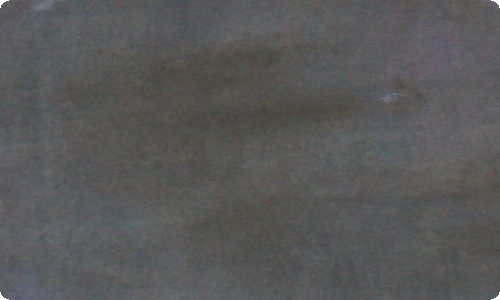
个人留学申请书
在一步步向前发展的社会中,申请书与我们的生活息息相关,不同的使用场景有不同的申请书。为了让您不再为写申请书头疼,以下是小编为大家整理的个人留学申请书,希望能够帮助到大家。
个人留学申请书1
1、姓名。
力求与各种学li证明的姓名相同,如有更改姓名的情况,务必在公证时予以声明,并附上公证书。
2、性别。
3、出生年月日及地点。
力求与各类学历证明的出生年月日一致,出生地点写明国别和省份。
4、国籍。
5、婚姻状况。
6、现工作单位或就读学校及详细通信地址。
7、教育背景。
包括大学、硕士阶段的在读时间,所在大学的名称、专业和所获学位,参加工作后的受教育经历,主要指脱产接受专门的进修、培训或学习。
8、专业经历。
应力求抓住重点,突出研究方向。担任教学工作的可列出主讲、助讲课程的名称,担任研究工作的可列出参加各个研究项目的课题名称。
9、个人的著作、论文或研究成果要分门别类列出,并一定要与个人专业经历相一致。
所列着作要注明名称、出版年月、出版单位。所列论文要注明论文题目,刊载杂志或期刊名称、期号、语种。对于在学术会议上发表的文章还要注明学术会议的名称、召开时间和地点等。如果其中有被外国学者评论过的,最好附上刊载评论文章的杂志名称及时间。
10、外语水平。
注明参加考试的时间、地点及成绩。若申请者掌握多门外语,则要一一注明语种并说明熟练程度。
11、参加何种学术团体,得到何种荣誉。
学术团体一般应是省、市或行业一级以下的专业学术团体,在学术团体中所担任的职务可加以注明。荣誉主要是指在专业、技术研究方面获得的奖励和荣誉,并要注明获奖名称,颁奖时间和颁奖单位。
12、拟申请的大学和导师的姓名。
可根据申请者查询的资料予以注明,并要注意按照每个单位、每位导师一份简历的.原则,即在同一份自传中不必注明全部想要联系的单位和导师。
13、拟进行的研究方向和希望从事研究的题目。
国外院校的专业面一般较宽,要根据国外情况,力求专业面与其一致。研究课题可根据自己的研究兴趣和需要,同时也要尽量考虑对方的条件。
在简历的书写过程中,还应注意必须尽力保证字迹的工整、清楚,最好用电脑排版后打印。总之,一份成功简历要达到这样得标准:既不要言过其实,又必须充分反映自己的实际水平,展示自己得才华。求又是怎样的呢?
个人留学申请书2
Dear x,
“If a nation can be compared to a large vessel at sea, then the journalistsare its watch-keepers who timely report the treacherous shoals and hiddendangers to ensure the safe journey of the vessel.” This celebrated andthought-provocative motto by Joseph Pulitzer gives a most vivid and profoundelucidation of the crucial role that journalists can play in contemporary sociallife. Regarding the role of the watch-keeper, I have my own understanding. Thecareer of being a journalist entails “thinking allowed and thinking aloud.” Heor she should, first of all, be an active, sensitive participant of social lifeand demonstrate independent and critical insights. Apart from such qualities ascourage, social conscience, objectivity, enthusiasm and discretion, a journalistmust have deep concerns for the destiny of his/her nation and the welfare of itspeople.
I never cherish any blind faith in the accepted theories and teachings butinstead have endeavored to cultivate a skeptical attitude toward what I amexposed to. In my notebooks are recorded not only what my teachers have taughtme but also my personal contemplations and critical views. On many importantissues I have the habit of discussing with the most learned and inspiringteachers from whom to seek enlightenment and to probe into the essence of thematter through “collisions of ideas”. I have also devoted most of my spare timeto studying technical literature in the libraries, to keep myself informed ofthe latest academic developments and to develop my own academic perspectivesfrom a wealth of information. In taking examinations, I seldom confine myself towhat is laid down in the textbooks but instead try to present my ownunderstandings, observations and reflections. It is indeed not easy to be one’strue self but the joy of exercising my own academic initiative and exploring myacademic possibilities has given me immense satisfaction.
In studying the courses in myself specialty, I have paid close attention tolaying a solid academic foundation. I have been particularly fascinated by suchcourses as Mass Communication, Theories of Journalism, Theories of Broadcastingand Television Journalism, and History of Western Journalism, which have allowedme to gain a deep understanding of the principles of journalism and to examinejournalism in a historical context. The world of journalism represents anexciting world of ideas and ideals, a world of variegated phenomena that make upthe reality of our social life. Apart from compulsory courses, I took a numberof optional courses like The History of Ancient China. This course has been veryimportant to me because, in order to understand how China ’s mass communicationevolved in the contemporary period, it is necessary to gain insights into China’s traditional cultural and historical legacy and how those cultural andhistorical traditions shape the present and even the future of the country.
“A true scholar must be well-read and well-traveled.” This well-knownChinese saying points to two essential qualities that a successful student andscholar must possess—ample book knowledge and practical experience (the latterresulting from field trips far and wide). I believe this principle holdsespecially true for practitioners of mass communication because it is more of anapplied academic discipline. For half a year just as a freshman, I didinternship at x Television Station—one of China ’s major TV producer—where Iperformed two types of responsibilities: translating English materials intoChinese and editing news. The first responsibility exposed me to the standardpractices of western mass media while the second allowed me to obtain practicalwork experience.
Later, working as an interning reporter at x Daily, the largest newspaperin the city, I concentrated on the issue of possible water pollution in theThree-Gorge Region where the world’s largest hydrological project is under way.For a whole month, I traveled to 10 counties and investigated the operation ofthe 19 water treatment factories in this region. In addition, I interviewed 12environmentalists and based on detailed facts and statistics I gave an objectiveand detailed analysis of the possible negative impacts of the project on thelocal water environment and urged the local authorities to take concretemeasures to guard against possible consequences. My serial articles producedwidespread sensation and made the protection of water environment the hotsubject of the time in the local media. For me, this was a most importantexperience as a feature story writer because for the first time in my life Imade extensive field trips and reported on the issues most closely related tothe welfare of the general public. This experience significantly heightened myawareness of the social responsibility of the journalist and of the role that ajournalist can play in promoting the social welfare of the people.
My independent thinking, sound academic performance and practical mediaexperience distinguished me from most of my fellow students and came to theattention of Prof. xX, a leading scholar on “cultural communication” in myuniversity. At his invitation, I became a key member of his research team andserved as his research assistant. I read a number of leading academic journalsincluding x and analyzed all the available American news programs recorded onvideotapes. Based on my research findings, I wrote a research paper entitledCross-Cultural Communication Significance of English News for DevelopingCountries. The paper explores how developing countries (whose native language isnot English) can best employ English news programs as an effective tool ofcommunication with the English-speaking audience in the world, with Englishlanguage as the dominant language of communication in the ongoing globalizationcontext. I also proposed specific steps how those developing countries canpromote the communication and the influence of their national cultures in theinternational community and facilitate their social and economic development. Mypaper was published in the national-level journal TV STUDY, which indicates therare achievement of an undergraduate.
The publication of my research paper also testifies to my researchpotential. The vice chairman of my department offered to be my advisor of mygraduation thesis. Under his guidance, I am researching on media culture andconstructing analytical models. So far, I have completed the research onAmerican mainstream media culture and its pluralistic value system. My advisorhas expressed considerable appreciation of my research work so far.
x University where I am studying is a key national university thatattracts best students from every part of the country. In fierce academiccompetitions, I have managed to remain top-third in academic performance and winscholarships throughout the years. I received the honor of Outstanding Studentof x University and on account of my distinguished English proficiency I wonthe third prize for my university in the nationwide English Contest ofUniversity Students in 20xx. In my extracurricular activities, I organized andparticipated in several major events for such student organizations as “Galaxy”Literary Society, “What’s New” Student Newspaper, and “Be Creative” Association.As a result, my writing skills and journalistic competence have been markedlyimproved.
Building on my educational background, my research experience and myresearch interest, I would like to pursue a Master’s program in MassCommunication. The courses that I plan to study include international masscommunication, mass media and culture, theories of mass communication, methodsof mass communication research, history of mass communication, economic andpolitical aspects of mass media. I wish to obtain comprehensive and advancededucation in mass communication and seek opportunities to participate inworkshops, seminars and projects. If possible, I will continue my study toward aPh.D. degree. I believe that academically and experientially I am qualified foryour well-respected program. Therefore I wish that you would seriously andfavorably consider my application.
Yours sincerely,
个人留学申请书3
申请日本留学的途径
1、读日本语言学校→日本大学
日本语言学校主要是针对没有日语水平和有一点日语基础的同学去日本留学开设的学校,语言学校除了教授日语外还会辅导学生如何选择大学和专业,甚至还会安排入学考试前的培训面试等等(包括日文写作及面试辅导等)。这样你可以考入一所优秀的日本大学,而不是在国内取得那些三四流类大学的文凭。大家不用担心考不上大学,日本大学很多,在国内都能去读,何况到了日本。如果你想日本留学有所作为的话,去语言学校,将来考一所国公立大学,找工作也相对容易。除了国公立大学,有些私立大学也很不错,但学费昂贵。
2、读日语专门学校→日本大学(大二、大三编入)
如果不想浪费时间,想去日本直接读大学,而又不想在国内读日语,那就去读专门学校的日语学科,这个专业只要求日语4级(JLPT-4)就可以去日本,如果期间还想读大学可以插入日本大学二年级或三年级(需要折算以前的学分决定进入几年级)。编入的专业一般都是同专业,主要考察日语和专业课,如果跨专业编入,通过几率较小。这也是给一些想节省时间的同学提出的小建议。
3、直升日本大学
日本大学要求日语二级(N2)就可以申请了。想必学过日语的朋友都知道你考出二级的水平,根本没有办法跟上日本大学的课程。一方面要学日语,一方面要打工挣钱,一方面还有大学的课程,你会手忙脚乱的。建议是考出一级(N1)再去申请。要不就直接去语言学校锻炼半年到一年,这样经费也有了,日语也达到要求了。
4、读日本大学预科→日本大学
事实上,日本预科班也会像语言学校一样安排备考“日本留学试验”的辅导课程,但在日本,设立预科的院校较少,通常只有私立大学才设立,不过有些预科班有一定的局限性,比如会限制学生的升学选择,规定学生日后升学只允许入读该预科班所在的大学。而且预科班除了日语课程以外还安排其他基础课程,全天制上课,学生打工时间不多。生活方面没有更好的保障。预科班在每年的4月和10月开学,语言学校的学制更加灵活,在每年的1、4、7、10月开学。语言学校和大学预科的学费相差不大,但就签证成功率而言,语言学校的签证成功率比预科学校高。
日本留学修士申请途径
一般日本留学申请途径分为语言学校过渡直接考修士、研究生预科考修士、SGU(英文项目)。
1,语言学校过渡直接考修士:是经由日本法务省公认的主要用来接受外国留学生的日本语教育机构,比较适合本科生(日语零基础或者没有N2以上)的同学。其特点为可以有充足的时间来提高自己的日语能力,并且学校里有很多留学生可以方便沟通从而获得的留学资讯。但同时这也是不好的一点,学校留学生多难免鱼龙混杂需要自己多留个心眼,要时刻拉高警报,自己是去留学的,不要被不上进的人误导。
2,研究生预科考修士:研究生申请指的在国内申请修士的前期课程,适用于有N2以上的本科生或有一定日语基础的本科生。需要准备语言成绩,初期材料(包括个人简历、毕业及学位取得证明(或者毕业及学位预定取得证明)、成绩单、推荐信、照片、印章等)。之后还需要联系教授,日本大部分院校招收研究生时采取“导师内诺制”,教授具有绝对的话语权,教授只要同意接收学生,学校教务科一般都会给学生下录取通知书。跟教授联系的时间,一般是出愿开始半年前,这一阶段教授对于自己要几个学生比较有数,最晚也要在出愿截止前1-2周。得到教授内诺后,接下来需要准备是为了拿到学校入学许可书及合格通知书准备的工作,称为出愿,要想出愿,需要一个很关键的东西,叫做“募集要项”。募集要项上面会明确写明出愿时间、出愿地点及出愿提交材料等。出愿结束后,学校会安排统一的时间来开“教授会”,教授会通过后,学校一般都会发行正式的“入学许可书”或“合格通知书”。
3,日本SGU英语项目:Super Global University(超级国际化大学),是日本文部科学省在20xx年推出的Global30(G30)计划的后续升级版。旨在通过全英文项目,教学、研讨、论文全过程英文完成为目标,吸引海外留学生,增加学生国家化比例,提高学校排名。其特点是需要申请人英语水平高(托福考到90以上,雅思考到6.0以上)部分学校要求GRE/GMAT成绩;还有成绩单、推荐信、毕业证等基本材料;并且需要申请人是本科毕业生(有毕业证及学位证,自考学历不可以),申请时间通常情况下需要提前一年左右。但可选择的学校和专业有限,毕业后就业会成为一个大难题,如果这是想身临其境的感受一下日本文化就还好,否则显然就失去了赴日留学极大的意义。
个人留学申请书4
个人自述的形式和内容同样重要
我们对写作的方式十分感兴趣,申请人如何讲述非常重要——用清晰、准确的方式表达思想。在一所充斥着高素质候选人的学校里,决策的依据并非是数据和公式。个人自述帮助招生办做出理性的、但最终还是主观的判断。如果一所学校接一所学校地咨询,你就会发现个人自述的重要性越来越大。
是否具有对其职业的综合反思能力
在一篇个人自述中,我们要求申请人将他们的过去和未来有机地结合起来。我们把这种自传叫作“职业目标”自传。它为我们提供了确凿的信息,同时也可以确定申请人是否具有对自己及其职业的综合性反思能力。通常的情况是,即使是那些按照传统标准最聪明的人也做不到这一点。
我们第二篇个人自述是关于学习目标的,让申请人陈述他们想进耶鲁的理由。他或她想在这里学些什么如何做到学以致用。
避免三个极端的非此即彼的常见问题
(1)避免不实吹捧以及“英国式低调”
个人自述中最常见的错误就是把简历或个人历史重述一遍,没有反思、评价和自我批评。另一个错误就是写的都是“招生办的人想听的事情”,结果经常让人感到做作和矫情。
还有一些人不愿意讲自己,我们把这种情况叫作“英国式低调。”这并不一定是一个错误。事实上,在阅读了无数自我吹捧(这是另一个陷阱)的文章后,这种文章倒让人耳目一新。但是,如果申请人说得太少,也会令我们无从得知他这样做是出于谦逊呢还是因为拙于表达,或者他没有想到这篇文章对我们的重要性。
(2)在整体和简洁之间做到令人愉快的折衷
建议不要把草稿寄过来。文章写完后要再看两遍。尽量做到清楚、准确,但也不要因为篇幅的限制妨碍文章的完整。在整体和简洁之间可以做到令人愉快的折衷。但是,大多数的自传都太长了,换句话说,过长的文章要多于过短的。
最好的办法就是尽可能全面、诚实地回答学校的问题。让招生办的人自己去做有关录取的决定。不要想着搞什么心理战,或者企图替别人做决定。有些申请人自认为知道学校的想法,把自己装扮成某种类型,这样做会使我们失去了一个了解你的个性和思想的机会。
(3)坦白具有风险,不必掩饰对未来的不确定性
再说一遍,要诚实。诚实和坦白是优秀个人自述的标准,就像在工作和生活中一样,虽然这样做也有一点风险。有些申请人认为那些被录取的人都非常清楚在今后40年要做些什么。事实上,在这一时期,你对未来的想法还是一片迷茫。你可能要进入一个重新反省的阶段,感觉像是经历了一次重新组合、人生翻到了下一页、生活的方向也在改变。但是你并不清楚要走哪条路。如果你确实如此,那么就照实说;我们非常理解,即使是一些好学生,未来的管理界领袖也都经历过这种“阶段”。诚实地表示出你对未来的不确定要比装作什么都知道好得多。
另一方面,模棱两可并不是一个好品质,为了不至于误导,我要说的是大部分的申请人在自传中都表现出了很强的目标感。




